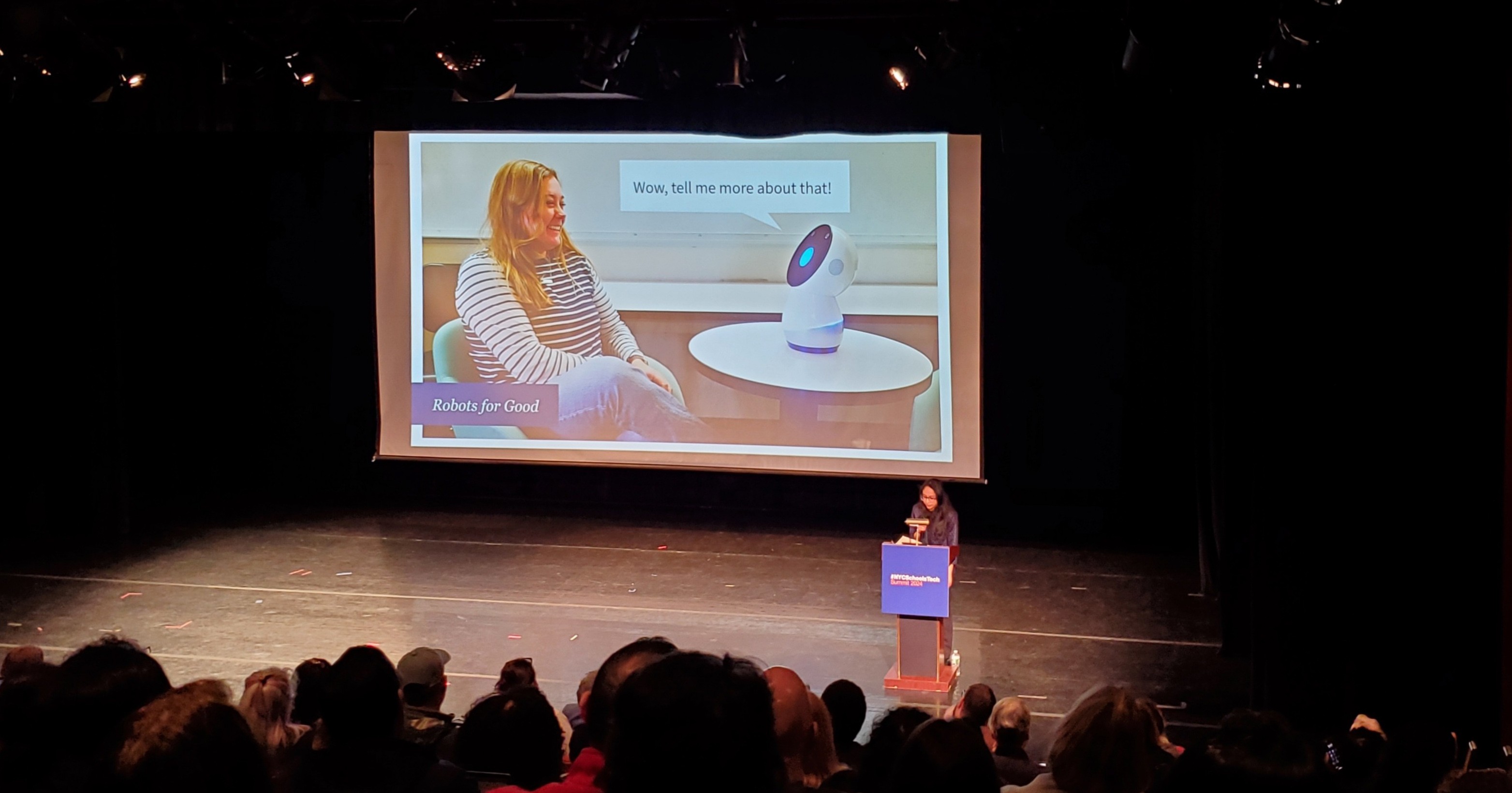
Rebecca Ramnauth
Yale University · Social Robotics Lab · rebecca.ramnauth@yale.eduExploring embodied computational cognition for decoding human social behavior.
I build theories about how people think, learn, and interact with the world around them [HRI'22, THRI'23, RO-MAN'24, OECD'25, HRI '2026]. Then, I apply these theories to develop robot-assisted interventions to better support users of various cognitive and technical abilities [HRI'21, HRI'22, HRI'25, RSS'25, RO-MAN'25].
Such theories include a theoretical framework for discerning socially appropriate robotic assistance, robot-assisted social skills interventions for Autism Spectrum Disorder, long-term mental health support for caregivers of and individuals with dementia, a teleoperated robot platform for mitigating social isolation during the COVID-19 pandemic, global benchmarks for AI social capability developed in partnership with the OECD, designing robotic environments for social-emotional regulation for NYC DOE public schools, and building custom social robots for anxiety reduction on university campuses.
Currently, I am a postdoctoral researcher at Yale University in robotics and a member of the Social Robotics Lab led by Brian Scassellati. During my time at Yale, I've co-written the Handbook for Residental Deans, led course sections in AI and Robotics, and have advised over 20 students towards their thesis.
Prior to Yale, I was the Assistant Dean for Research and Curriculum Development at LIU and a lecturer at various universities. Beyond lecture halls and research labs, I am the Director of the MIA Foundation, a non-profit that partners with local businesses and provides annual scholarships to support employment for adults with Autism Spectrum Disorder.
with users ranging from ages 4 to 104, across Connecticut and New York City.
of uninterrupted, fully autonomous robot operation in real-world spaces—demonstrating reliability beyond the lab.
of therapy and training, delivered autonomously and tailored to individual users' needs.
of active therapeutic engagement, where robots supported users in intervention activities.
of multimodal data collected, enabling large-scale analysis of long-term human-robot interaction.
Impact reported as of August 2025, representing cumulative outcomes from the five deployments described in my Ph.D. thesis. All user studies submitted to ACM, IEEE, or joint international venues have been recognized as finalists or recipients of Best Paper Awards.
My research is currently supported by awards from the National Science Foundation (NSF), the National Academies of Science, Engineering, and Medicine (NASEM), the National Institutes of Health (NIH), and the U.S. Office of Naval Research (ONR). Past awards include the NSF Expedition in Computing (Socially Assistive Robotics) and generous donations from the Yale Alumni Association.
A month-long deployment of a robot that autonomously delivers therapeutic intervention in a K-5 public school. It is the first ever robot to target behavioral de-escalation in a public space, and additionally the first multi-user, robot-led therapy to remain agnostic to users' diagnosis and age profiles. It is also one of the first robotic interventions that leverage foundation models to deliver unscripted, fully improvised therapy. · "From Fidgeting to Focused: Developing Robot-Enhanced Social-Emotional Therapy (RESET) for School De-Escalation Rooms" · RO-MAN · Eindhoven, The Netherlands · August 2025 · PDF · Slide Deck.
Atypical gaze behavior is a diagnostic hallmark of Autism Spectrum Disorder (ASD), playing a substantial role in the social and communicative challenges that individuals with ASD face. This study explores the impacts of a month-long, in-home intervention designed to promote triadic interactions between a social robot, a child with ASD, and their caregiver. Due to IRB regulations protecting confidentiality of minors, a partial dataset is readily available, but the full dataset will be provided upon request. · "Gaze Behavior During a Long-Term, In-Home, Social Robot Intervention for Children with ASD" · HRI · Melbourne, Australia · March 2025 · PDF · Slide Deck.
The NSF-GRFP is a prestigious grant awarded to approximately < 10% of student applicants pursuing research-based graduate degrees · $46,000 x 3 yrs + $5,000/term · "Discovering the Neural Mechanisms of Dyadic Social Interaction Using Human-Robot Interaction"
The Ford Fellowship is a competitive grant awarded to < 5% of Ph.D. or Sc.D. students applicants by the National Academics of Science, Engineering, and Medicine · $27,000 x 3 yrs · "Developing Long-Term, In-Home Socially Assistive Robots for Adults with Autism"
A core theme of my research is to design systems that support social and mental well-being in clinically meaningful way. I am working to develop custom robots like Ommie to support anxiety reduction in users as young as pre-school-age to seniors with dementia. By mimicking the rhythm of deep breaths through mechanical movements, Ommie provides tactile feedback and a calming social presence.
For instructions on building your own Ommie, we are currently working on making its documentation and code open-source [coming Dec. 2025].
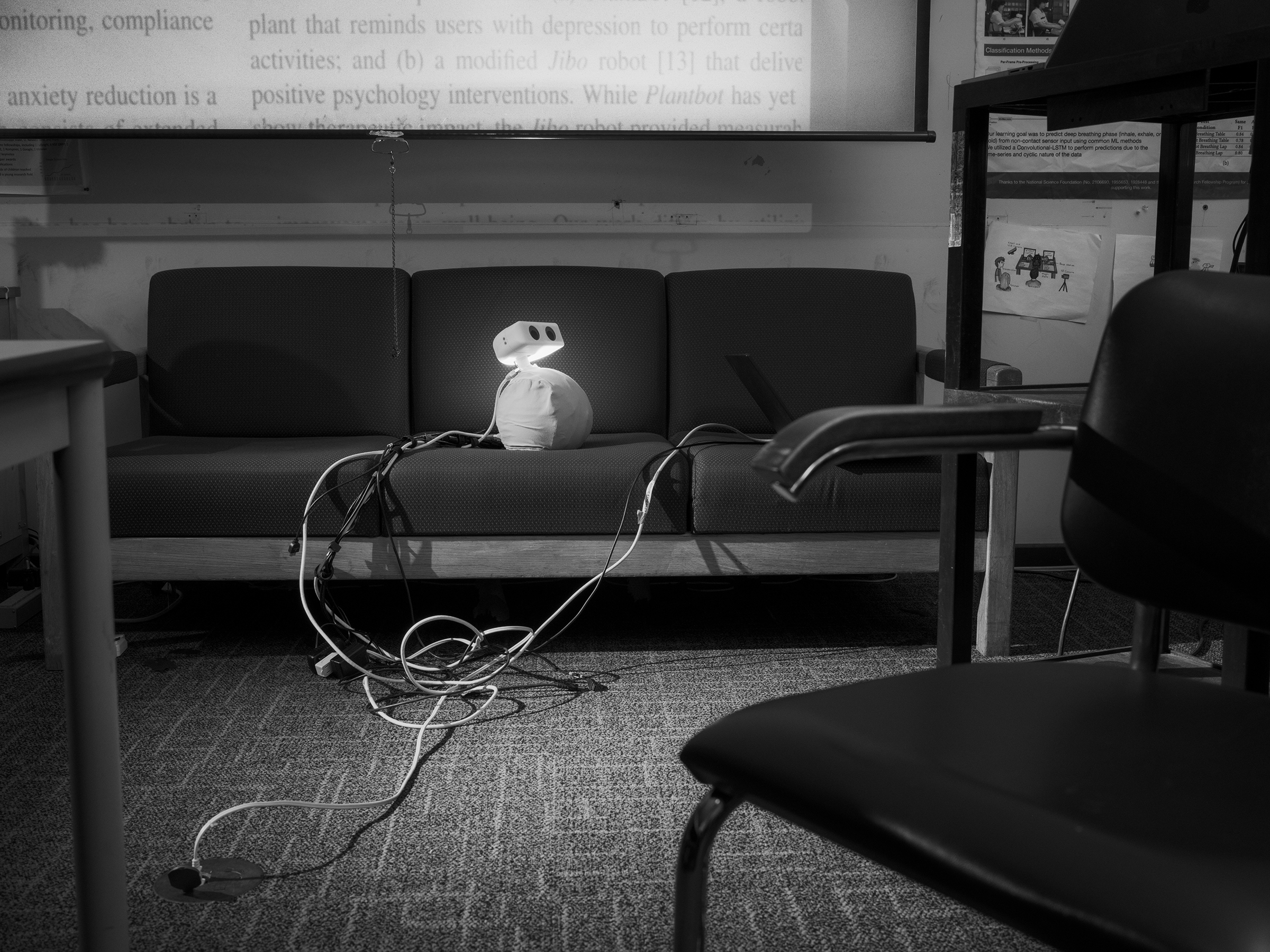
Another branch of my research explores how robots can aid in diagnosing, treating, and understanding social disorders such as ADHD, OCD, and Autism Spectrum Disorder (ASD). My focus is on developing long-term, in-home robot-assisted interventions while emphasizing the predictive role of behavioral markers and the clinical significance of these approaches. Key challenges include creating automated assessments in dynamic home environments, ensuring the long-term reliability of robots for daily use, and bridging the gap between research and clinical application. My work highlights the potential of robots as effective, long-term tools for autism therapy, providing reliable in-home support.
Building on prior successes [HRI'22, HRI'25, RSS'25], my research advances the development of robots across the user spectrum. Across three in-home studies, our systems have helped users with ASD practice conversational nuance, manage cognitive load autonomously, and navigate social-emotional regulation challenges. To date, these represent the only robot-based interventions for adults with ASD deployed for unsupervised operation in user homes over multiple days. Beyond advancing therapeutic applications, my work addresses the unique computational, architectural, and ethical challenges of building socially intelligent robots that can operate reliably and responsibly in dynamic, unstructured environments.
New York Times IEEE Pulse Tech & Learning Yale Daily News YSEASOne facet of my research focuses on creating robust systems capable of autonomous operation in dynamic, unstructured settings like homes. The COVID-19 pandemic highlighted several opportunities in our daily lives for which robots can play a social role. In response, we developed a robot teleoperation system tailored for elementary school-aged children, allowing them to engage in physical play even when physically separated [HRI'22]. This approach empowers children to control the actions of robots in their friends' homes and communicate with them. The outcomes of my research, along with user feedback, suggest that robots can offer a fun and safe means for individuals to connect socially during a global pandemic. For more information about this project, visit Robots for Good.
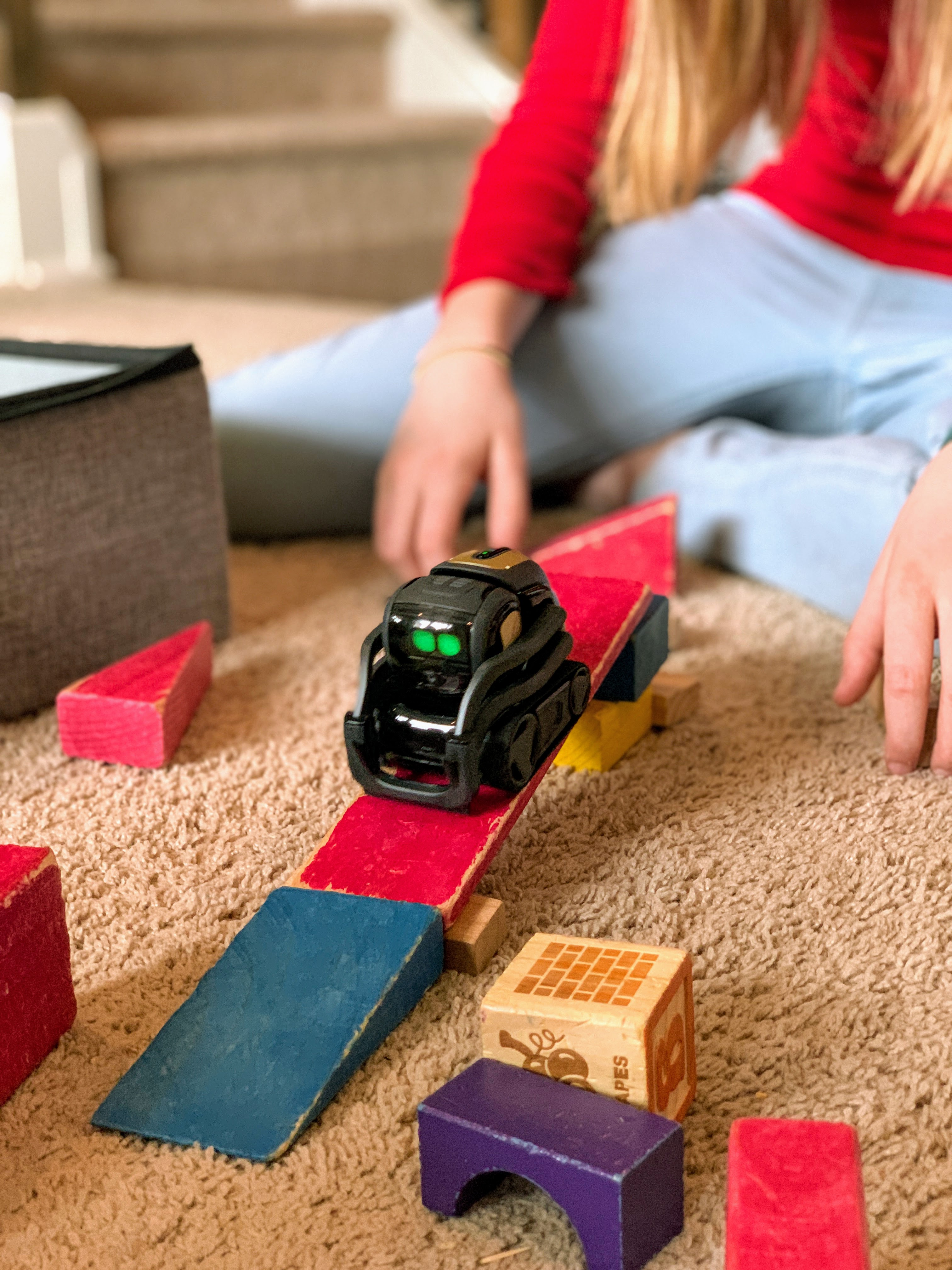
Many schools have built de-escalation and sensory rooms to support students who experience heightened emotional states, sensory overload, or difficulty self-regulating in traditional classroom settings. Yet, effective implementation remains challenging due to diverse student needs and resource constraints. Hence, we developed RESET (Robot-Enhanced Social-Emotional Therapy), a robot for facilitating students' self-regulation in their school's existing de-escalation space. We present our co-design process, iterative development, and final system components. Following a fully autonomous, month-long deployment in an elementary school, we assessed the robot's usability and impacts. Results indicate RESET integrated well into the school environment, promoting more efficient de-escalation, smoother transitions back to classroom learning, and lasting impacts beyond its deployment period [RO-MAN'25].
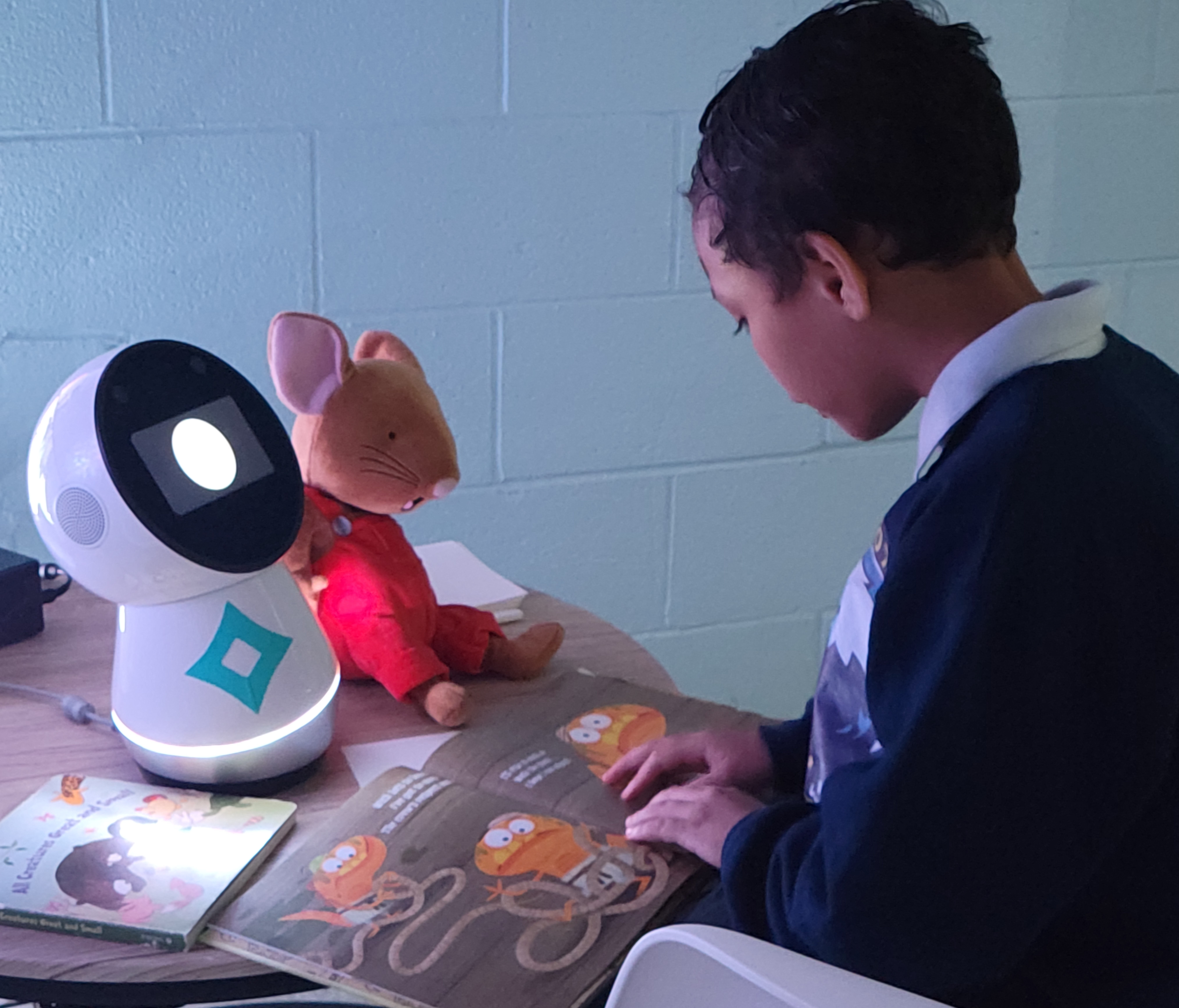
The field has developed around a stable set of assumptions about what robots are and how they should behave. These assumptions arise from the constitutive traits of robots, which together shape social expectations. Over time, these expectations have hardened into tacit rules that quietly govern research and design: robots should always engage, help, be productive, remain polite, never lie, never err, and never model harm. While these prevailing norms have merit, they also constrain the field's imagination of the interactions robots can meaningfully support. I propose rule-breaking as a generative design strategy and illustrate how deliberate violations (robots that interrupt, refuse, mislead, or err) can produce interactions that are more ethical, effective, and socially intelligent [HRI '2026].

From early prototypes to real-world deployment, this research isn't all code and sensors—sometimes it's packing bubble wrap, taping wires under couches, and watching quietly from the hallway. Here's a peek at the moments that don't always make it into the published paper.
Ph.D., Computer Science · Yale Social Robotics Lab · Advisor: Brian Scassellati Dissertation: Building Intelligent Robots for Social Regulation Therapy
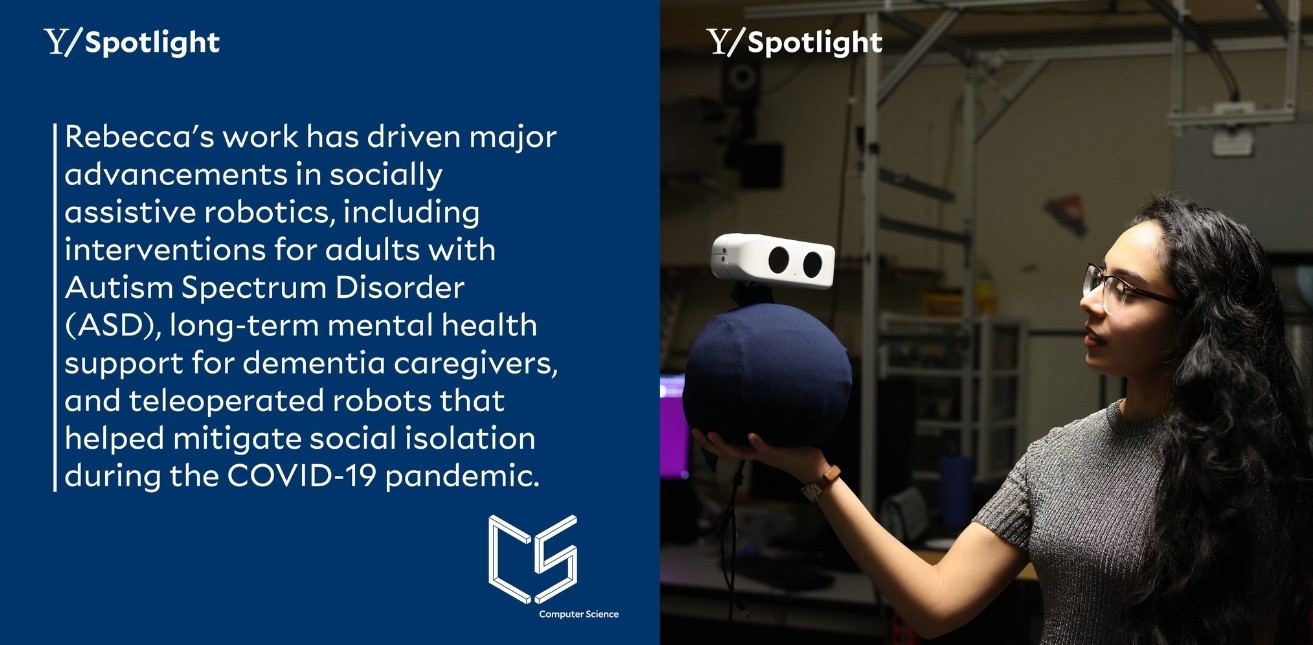
M.Sc., Computer Science · Yale Social Robotics Lab · Brain Function Lab Thesis: Discovering the Neural Mechanisms of Dyadic Social Communication using Human-Robot Interaction · Advisors: Brian Scassellati and Joy Hirsch
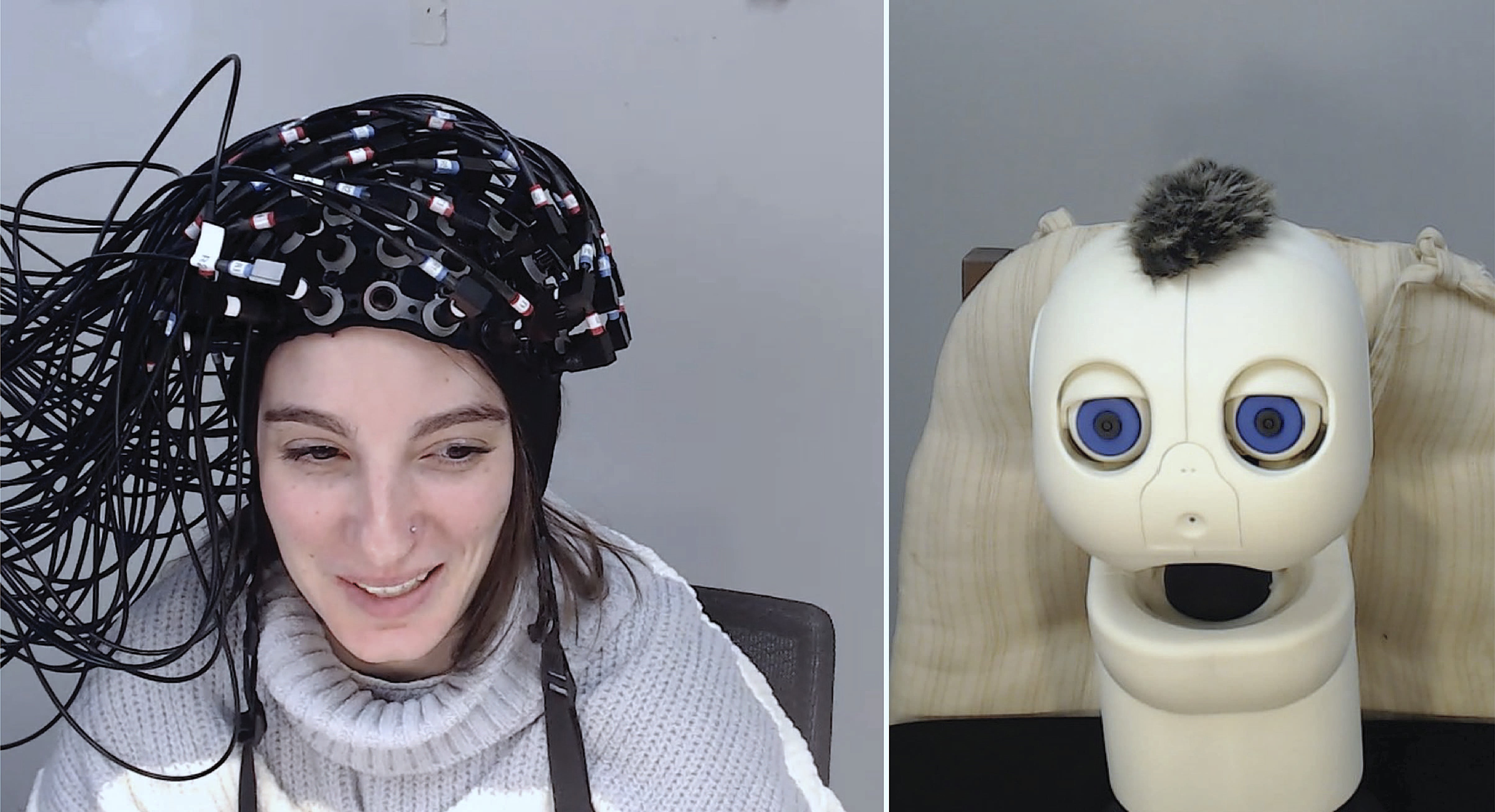
The rapid and nearly pervasive impact of AI on fields as diverse as medicine, law, banking, and the arts has made many students who would never enroll in a computer science class become interested in understanding elements of AI. Fueled by questions about how AI would change their own fields, these students are not seeking to become experts in building AI systems but instead are searching for a sufficient understanding to be safe, effective, and informed users. Our first-of-its-kind course offering aims to encourage critical thinking about AI and its relevance for non-CS majors, without technical prerequisites [E-AAAI'25].
"When Rebecca Ramnauth talks about AI and robots, she doesn't speak about whether they will replace human tasks or facilitate more efficient teaching and learning. Instead, she discusses the ways in which AI and robots can help us better connect with one another as humans." — Erik O. for Tech & Learning Magazine
